Ancient History looks at every aspect of the ancient world: you'll find articles covering politics, society, literature, language, religion, economics, and art - all in one magazine! Like its big brother, Ancient Warfare, Ancient History Magazine is a bi-monthly, 60-page magazine that relies on a thematic approach: each issue is centered around one specific subject. From ancient Egyptian trade and Roman family life to the lost city of Pompeii, there's sure to be something for everyone - all presented in a well-researched but accessible, fun manner.
Ancient History Magazine
EDITORIAL - MUSES, MASKS, AND MACHINES
PRELIMINARIES
Farming and fishing in ancient Britain
Roman-era Greek theatre discovered in Crete
Revealed: the donkey's African origins
A Roman cemetery hides grim secrets
A TEXTUAL POMPEII • Discovered more than a century ago, the Oxyrhynchus Papyri are among the greatest treasures from the ancient world. Scholars gained access to Creek literary texts, Christian documents, and administrative documents. Only a fraction has been published.
MYTH AND MYTHMAKING IN THE LIFE OF ALEXANDER THE GREAT • Professor Paul Cartledge, Emeritus A.G. Leventis Professor of Greek Culture, Cambridge University and author of several books on Alexander the Great, is one of the foremost classicists. In this interview, he delves into the mythic side of one of the most dynamic, successful generals in history. From his birth to his death (and afterwards), Alexander's life was bathed in myth.
THEOPHORIC THEATRICS • Going to the theatre in ancient Athens was an event of great importance. It had both religious and civic significance, bringing the community together, and performing in the Theatre of Dionysus could bring lasting fame.
POLITICS IN PLAUTUS • Plautus, a playwright of the late third century BC, published a great many comedic plays for performance in Rome, often reworking older Greek comedies to suit his Roman audience. Just like his Greek predecessors, Plautus did not shy away from highlighting the contemporary anxieties of Roman society, often referencing politicians and wars. In Plautus' surviving plays, we can see the theatrical atmosphere of mid-Republican Rome.
THEATRE IN ROMAN BRITAIN • Live theatre was a popular leisure activity for people in the Roman world, and one that spread to many of the provinces. Britain, on the edge of the Empire, was no exception. Although theatre in Roman Britain is largely undocumented, a range of archaeological finds, from the remains of theatres to theatrical props, provide some insight into Roman-British attitudes to the dramatic arts.
TENTS, TRAYS, AND CRANES • The Theatre of Dionysus is a famous landmark that exemplifies the Athenians' love of drama. However, the theatre was not simply a space to perform, but a space of great social importance, which may have begun as a simple open area in the agora.
THE CENTERFOLD
LOUD AND CLEAR? • Creek theatre was masked theatre. All the actors wore large, visually striking masks, which concealed the performer beneath and projected a new character to the watching audience. Brightly coloured, highly stylized, and somewhat oversized, the theatrical masks were an essential component of ancient performance culture and are perhaps one of the most misunderstood aspects of ancient theatre.
The world of ancient masks
THEATRE IN LATE ANTIQUITY • By the mid-sixth century AD, actresses had come to be equated with prostitutes. Although their profession had never been thought moral, by this period, a time when Christianity had become the dominant religion of the Roman Empire, actresses had come to wealth and status, even rising to one of the highest offices in the Roman world - the empress. Writers reacted to the rise of actresses' status with...
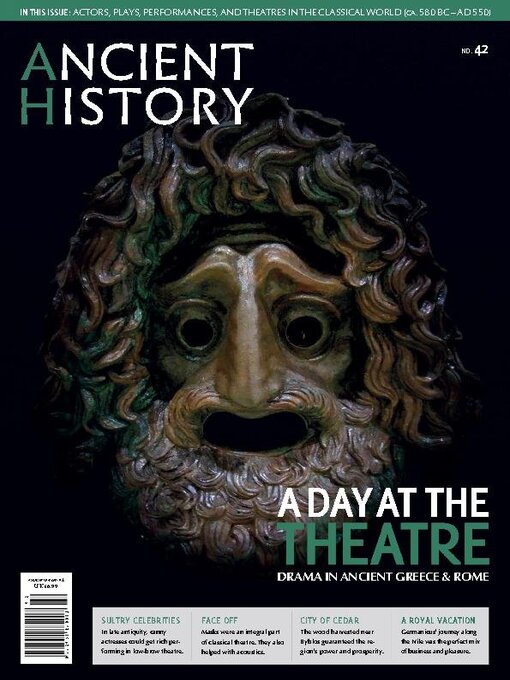
 AH 57
AH 57
 AH 56
AH 56
 AH 55
AH 55
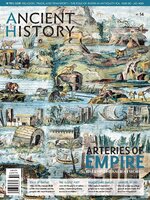 AH 54
AH 54
 AH 53
AH 53
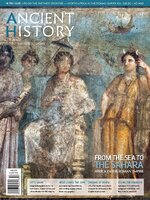 AH 52
AH 52
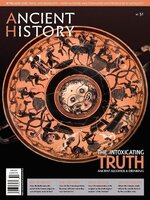 AH 51
AH 51
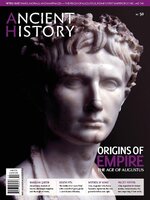 AH 50
AH 50
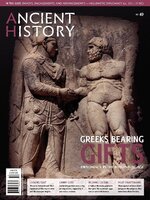 AH 49
AH 49
 AH 48
AH 48
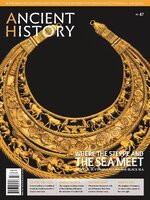 AH 47
AH 47
 AH 46
AH 46
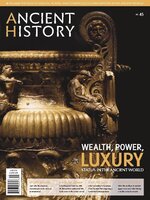 AH 45
AH 45
 AH 44
AH 44
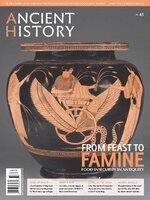 AH 43
AH 43
 AH 42
AH 42
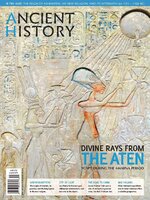 AH 41
AH 41
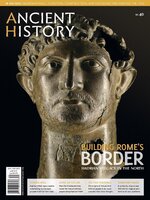 AH 40
AH 40